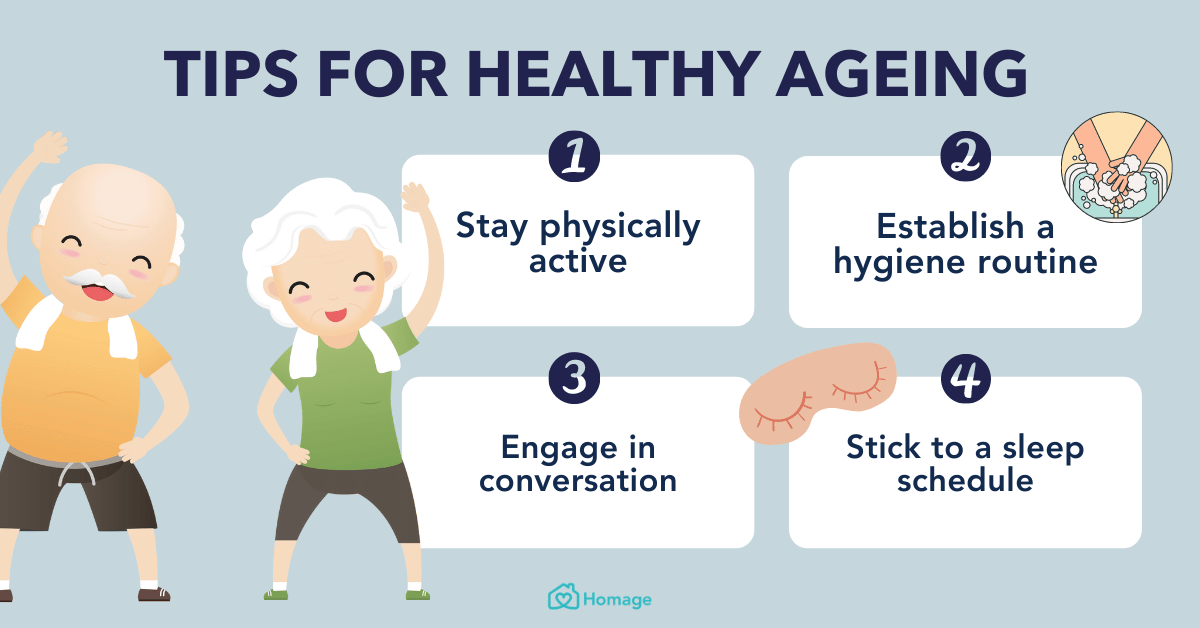
According to a new study, a combination of healthful lifestyle choices, such as maintaining a healthy weight, not smoking, and regularly exercising, can significantly extend the number of years that an individual avoids disease.

On average, we are living longer lives; however, as people grow older, many live with diseases, such as heart disease, cancer, and diabetes. As lifespan extends, so does the risk of developing chronic illnesses.
Scientists have firmly established that lifestyle factors can make a significant difference to the risk of disease and length of life, overall. These factors include physical activity, smoking, alcohol consumption, diet, and weight.
The authors explain that “[s]tudies have shown that smoking, inactivity, poor diet quality, and heavy alcohol consumption contribute up to 60% of premature deaths and 7.4–17.9 years’ loss in life expectancy.”
Although this is well known, little research has examined how a combination of lifestyle factors impacts the length of time an individual will be disease-free.
To answer this question, a group of researchers took data from two sources; firstly, the Nurses’ Health Study, which included information from 73,196 female nurses. Secondly, they gained access to data from the Health Professionals Follow-up Study, which included the data from 38,366 male health professionals. They published their findings in the BMJ.
Lifestyle and health over time
The scientists calculated a lifestyle score from 0–5 for each participant. They calculated this score by assessing five low risk lifestyle factors — healthy weight, never smoking, exercising for at least 30 minutes each day, moderate alcohol intake, and a good quality diet.
Researchers had followed the participants for many years and recorded diagnoses and deaths from cancer, type 2 diabetes, and cardiovascular disease. As part of their analysis, the scientists accounted for a range of factors, including family medical history, age, and race.
The authors of the recent study found that women aged 50 who did not adopt any of the five low risk lifestyle factors could expect to live without cancer, diabetes, and heart disease for a further 24 years. However, those who followed four or five of these factors could expect an additional 34 disease-free years.
Men aged 50 who did not incorporate any of the low risk lifestyle factors into their lives could expect to live an extra 24 years free of chronic diseases. However, those whose lifestyle included four or five low risk factors had around 31 years of disease-free life.
Men who smoked more than 15 cigarettes each day, and anyone with obesity had the lowest amount of disease-free life expectancy after 50. The authors summarize:
“[W]e observed that adherence to a low risk lifestyle was associated with a longer life expectancy at age 50 free of major chronic diseases of approximately 7.6 years in men and 10 years in women compared with participants with no low risk lifestyle factors.”
Improving survival
The scientists also found that men and women with four or five low risk lifestyle factors who received a diagnosis of cancer, cardiovascular disease, or type 2 diabetes lived longer than individuals with the same diagnoses who did not have any low risk factors. As the authors explain:
“A healthful lifestyle not only decreased the risk of incident cancer, cardiovascular disease, and type 2 diabetes but also improved the survival after diagnosis of those diseases.”
The authors are quick to note that the study is observational, so it is not possible to conclude a causal relationship. Also, lifestyle factors were self-reported, which, as the authors write, means that “measurement errors are inevitable.”
Even though the scientists controlled for a wide range of factors, there is always a possibility that unmeasured factors might account for the results.
However, the scientists had access to detailed information from each participant at multiple times over a substantial followup period; overall, they conclude:
“Public policies for improving food and the physical environment conducive to adopting a healthful diet and lifestyle, as well as relevant policies and regulations (for example, [the] smoking ban in public places or trans fat restrictions) are critical to improving life expectancy, especially life expectancy free of major chronic diseases.”
Related Post
 20
20 Jun
Journal Prompts for Mental Health: 7 Ideas to Explore
Journaling has a heap of psychological well-being benefits, however you don't necessarily have any idea what to expound on to get the worth out of a journaling meeting. That is where journaling prompts for treatment come in. More profound diary prompts.
Read More 13
13 Jun
10 Natural Health and Nutrition Tips That Are Evidence-Based
If you have any desire to help your wellbeing and prosperity, there are a lot of regular and home solutions for browse, going from keeping away from singed meats and added sugars to rehearsing reflection. With regards to understanding what's sound,.
Read More 04
04 Jun
4 Tips for Preventing Food Allergies at School
Most guardians send their kids off to start another school year with energy. However, guardians of youngsters with extreme food sensitivities frequently have genuine apprehension. They frequently wonder: Will their kids inadvertently eat the food they're hypersensitive to? Food sensitivities are.
Read More 30
30 May
Everything You Need to Know About Healthy Aging
Maturing is unavoidable, yet if you reexamine the manner in which you take a gander at the excursion and do whatever it takes to really focus on yourself in every second, you'll track down the delight and liveliness of the.
Read More